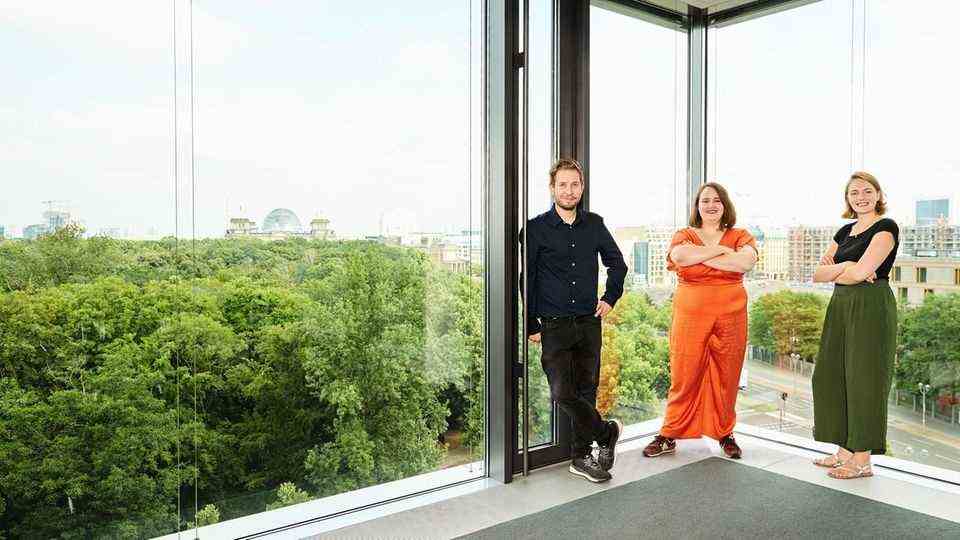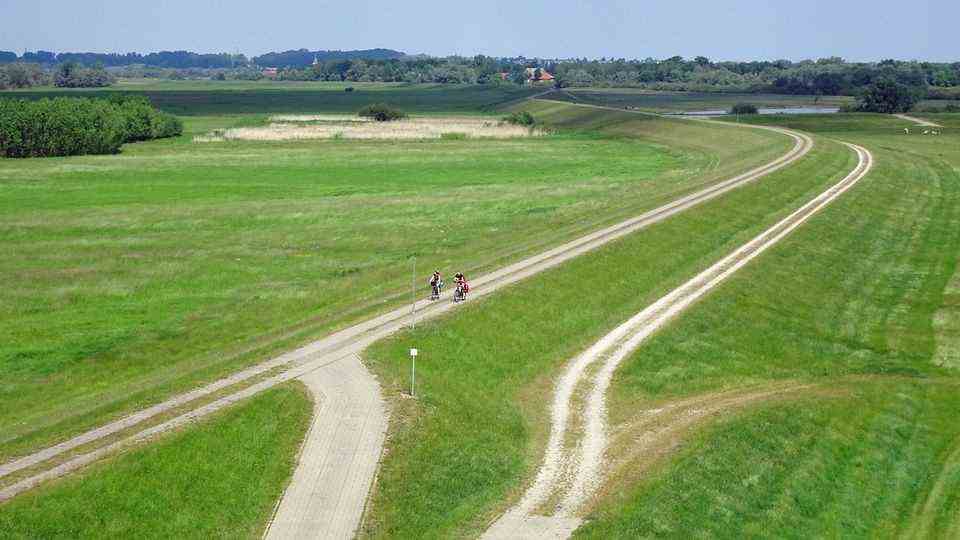party conference at the weekend
In troubled times: Greens elect new party leadership
They resign from the party leadership because of their ministerial posts: Annalena Baerbock and Robert Habeck (centre)
© Michael Kappeler / DPA
At the weekend, the Greens will elect a new party leadership at their party conference. Stubborn conflicts and high expectations await the two contenders Ricarda Lang and Omid Nouripour right from the start.
They were the faces of the rise of the Greens. From the smallest opposition party in the Bundestag, Annalena Baerbock and Robert Habeck formed a serious contender for chancellorship. The two chairmen are now stepping down after four years. A new leader will be elected at the party conference that begins on Friday – and they have to manage the difficult balancing act of maintaining the party’s independence and at the same time enabling government in the “traffic light”.
Lang and Nouripour want to succeed him
Baerbock took over the Foreign Office in the traffic light government, Habeck the Ministry for Economic Affairs and Climate Protection. Because of the usual separation of party and government offices among the Greens, they are now giving up their chair positions. The foreign politician Omid Nouripour and the deputy party leader Ricarda Lang are candidates for the successor.
Baerbock and Habeck leave their successors a whole mountain of difficult tasks. This also includes the controversial Corona special payments of 1500 euros each, which the federal executive board granted itself in 2020. The funds were repaid, but the public prosecutor’s office has now started investigations into the initial suspicion of infidelity.
Greens struggle with their role in traffic lights
So far, the process has not caused any major unrest among the Greens – the party is more concerned with its role in the traffic light coalition. After a fairly harmonious start, the Greens are now feeling the strain of the level.
Even the nomination of the ministers in the traffic light cabinet turned into a tough power struggle because of the dispute over who to fill the agriculture department – between ex-group leader Anton Hofreiter and the ultimately victorious Cem Özdemir.
No sooner had the personnel been decided than the Greens were annoyed by a push by the then designated Minister of Transport, Volker Wissing, to relieve diesel drivers. The FDP politician’s initiative reminded the Greens that the Liberals could step on the brakes on their ambitious climate protection goals.
But the FDP is not the only problem facing the Greens in the traffic light coalition: Foreign Minister Baerbock has to assert herself against Chancellor Olaf Scholz (SPD), who takes a more moderate course in Russia policy than many Greens would like.
The Greens are burdened with high expectations when it comes to climate protection
But especially when it comes to their core issue of environmental protection, the Greens are confronted with some bitter realizations: On New Year’s Day, Federal Environment Minister Steffi Lemke (Greens) had to protest against the EU Commission’s plan to classify energy production from nuclear plants as sustainable. And two weeks ago, Habeck admitted that Germany was “significantly behind” in terms of CO2 reduction targets and the expansion of renewable energies.
Such messages are bitter pills for the base – after all, there are enormous expectations of Habeck and his important department. Even the outgoing party leadership fears that the climate movement could turn away from the Greens in disappointment.
Michael Kellner is also resigning from his position
“The crucial thing is that we don’t repeat a mistake made in government from 1998 to 2005, where the Greens failed to maintain a dialogue with social alliance partners, where there were also upheavals,” said outgoing federal manager Michael Kellner recently on RTL/ nv.
Waiter, who is now Parliamentary State Secretary in Habeck’s ministry, is also resigning from his post at the party conference – the previous head of organization at party headquarters, Emily Büning, is running to succeed him.
Green youth hopes for conflict
Of course, there are high expectations of the two future chairmen – especially from the Green Youth. The next generation of the party hopes that the new federal executive will “make the party visible in the future and enter into conflicts,” as its chairman Timo Dzienus says in an AFP interview.
Ricarda Lang and Omid Nouripour will not be short of conflicting issues when they are elected new party leaders on Saturday. It will be interesting to see with how much self-confidence they will get their party through the troubled “traffic light” times.



